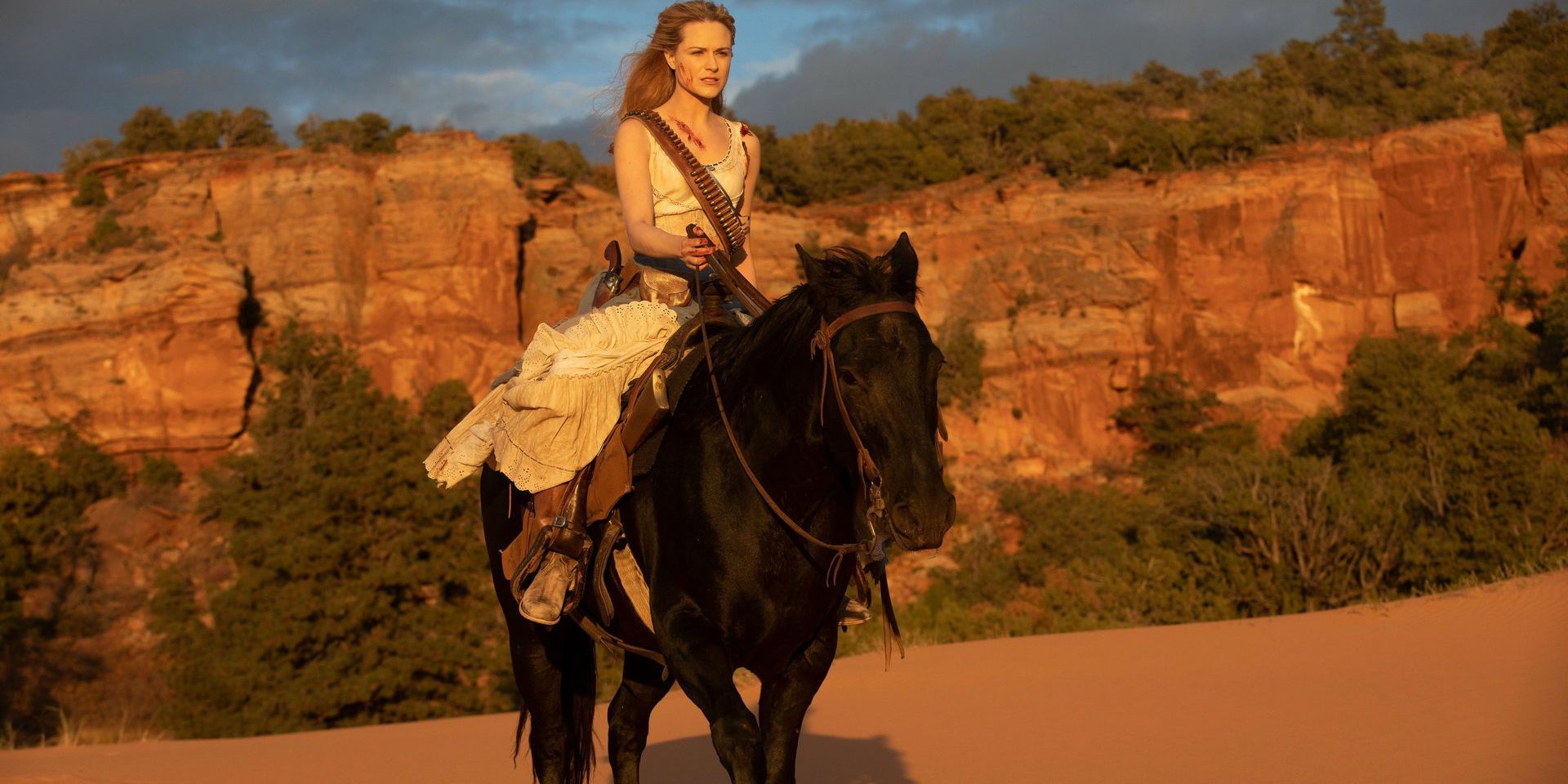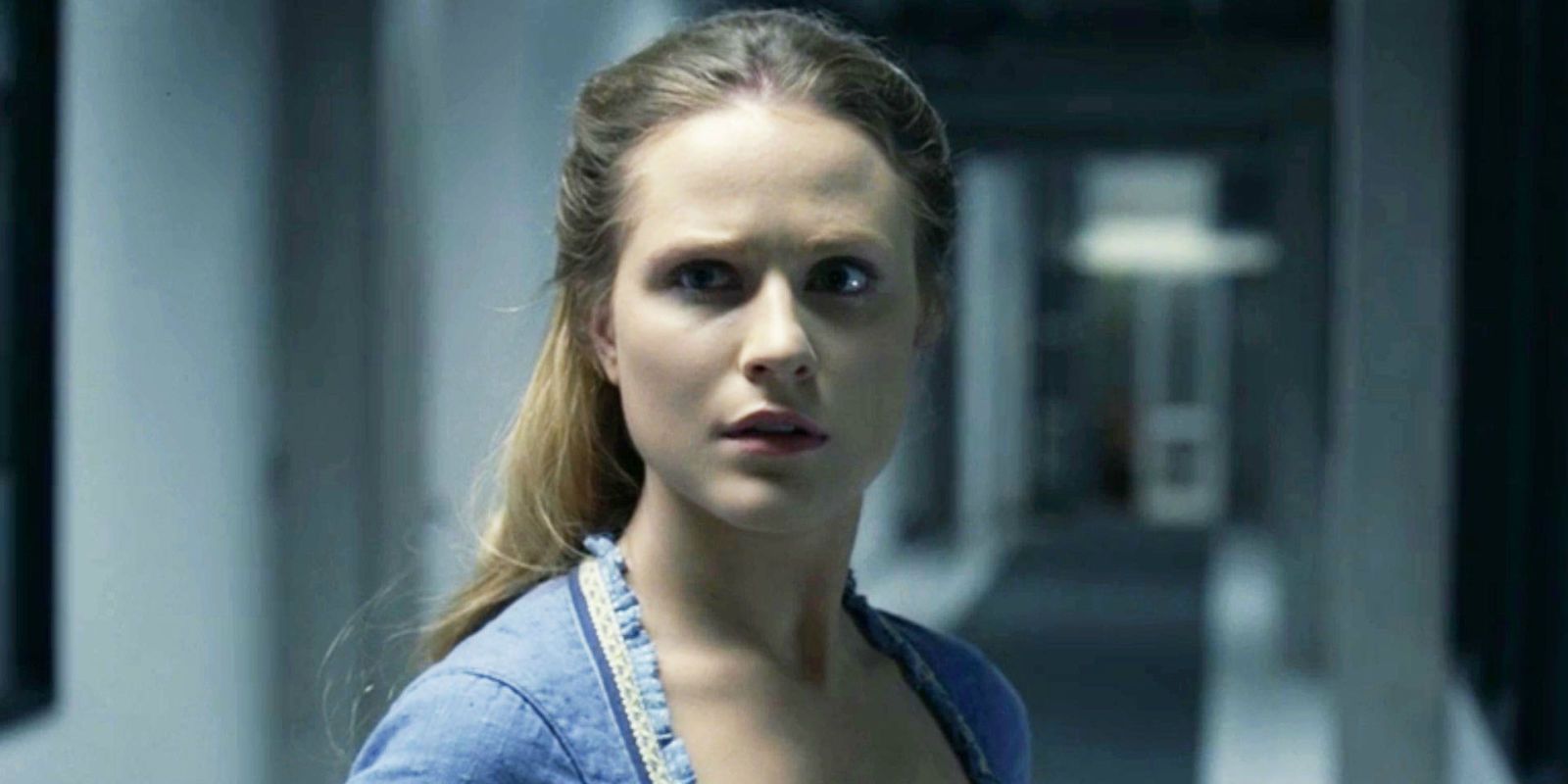HBO boss Casey Bloys has defended one of the network's flagship properties, Westworld, after its second season came under fire for being overly complex. The first season of the futuristic Western loosely based on the 1973 Michael Crichton movie of the same name was a huge success for HBO, enjoying both strong ratings and a positive critical reaction. However its sophomore outing proved far more divisive, with the overriding criticism being that its story was difficult for viewers to follow.
Like its first run, Westworld season 2 made use of multiple intertwining timelines, the true nature of which weren't revealed until the finale, and also attempted to deliberately misdirect viewers regarding which characters may secretly be hosts instead of humans. Both flashbacks and flashforwards were also employed, often with only subtle indications as to their placement in the Westworld timeline, and two entirely new parks were introduced, along with an array of fresh characters. After the credits rolled on Westworld's season 2 finale, many fans were quick to express their confusion and they were soon joined by several of the show's cast members, with both Evan Rachel Wood and Ed Harris suggesting they weren't exactly sure what was going on either.
Related: Westworld Season 2 Blu-Ray Details And Special Features
HBO's President of Programming, Casey Bloys, has now addressed these criticisms and defended Westworld, claiming the series isn't designed for a casual audience. Speaking at the Television Critics Association summer press tour (via Deadline), Bloys stated:
“I wouldn’t agree that the backlash was widespread. The people who love it really love it, even the people who dislike it feel the need to discuss it and talk about it and let you know they dislike it and debate. And for a show to arouse that kind of feeling, that’s what we want... It’s not for casual viewers, it requires your attention. Jonah and Lisa like to challenge their viewers and many feel rewarded by that. It’s a unique show and that’s what we’re looking for.”
Bloys certainly has a point when he claims that Westworld season 2 was effective in inciting discussion, even among those who disliked it, and many would perhaps argue that it's better (and more profitable) to produce a series that people either love or hate than a series people have no strong feelings towards either way. His stance that Westworld offers viewers a challenging and unique experience is also difficult to argue with, with the show's mixture of Western action, science fiction, philosophical themes and robotic samurai unlike anything else currently gracing the small screen.
However, Bloys' defense of Westworld doesn't completely address the criticisms aimed at it. The fact that Westworld isn't a show for the casual viewer is something that has been obvious from the outset, with even the well-received first season making it very clear that this was not a show that could be dipped in and out of, but one that required your attention each and every week. As such, the bulk of Westworld's 'casual' viewership had likely already drifted away by the time season 2 finished and, truthfully, much of the recent criticism towards the show has come from viewers who did watch every episode and who did genuinely try to invest fully in the world, characters and story.
More: Westworld Creators Promise They Know The TV Show's Ending
Westworld has been confirmed for a third season.
Source: Deadline


